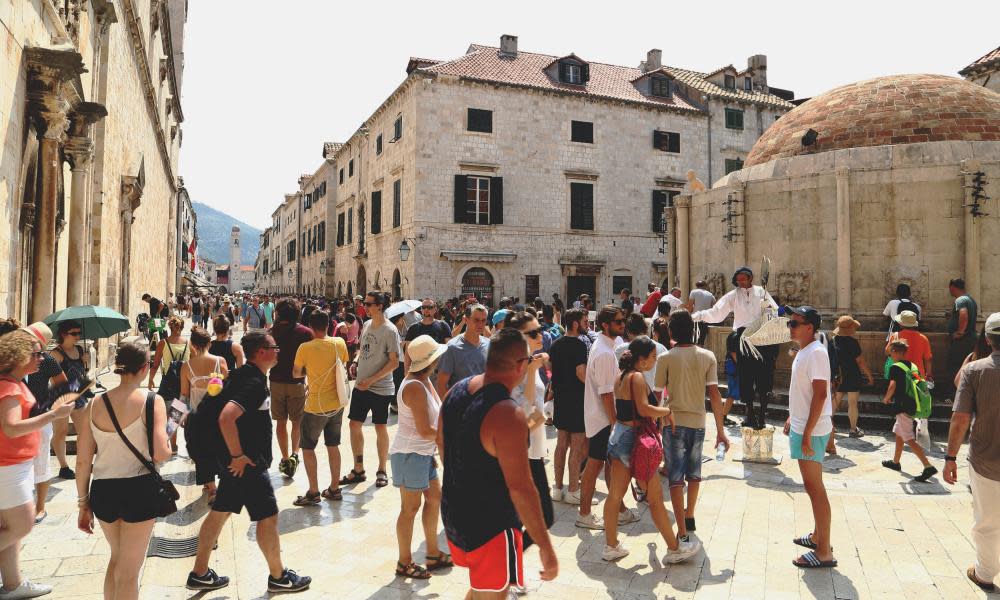The Guardian view on over-tourism: an unhealthy appetite for travel

Last week Cornwall became the latest beauty spot on the planet to admit it was the victim of its own success in attracting tourists. Such is the swell in numbers that there’s barely enough space to place a beach towel on the sands of Porthcurno beach and Kynance Cove. The local tourist board, tasked with getting people to come to the coast, has resorted to pleading with people to stay away. No doubt the long, hot summer sent people scuttling for the coast. But Cornwall’s overtourism problem highlights a number of familiar trends. First is how society now views nature itself as merely one more good to be consumed; second, the shallow, modern need to present a life free from the tyranny of a nine-to-five office job in the tight frame of Instagram; last, the influx of “set-jetters”, who seek out the locations of their favourite television dramas or films.
In the case of Cornwall, the fans of the BBC’s Poldark arrived in such numbers that it threatened what attracted them in the first place: the tranquil sublimity of the Cornish Caribbean. Others have taken more drastic steps to curb fans’ insatiable appetite to visit places depicted on screen. Croatia’s Dubrovnik, used as the fictional King’s Landing on TV’s Game of Thrones, has limited the daily numbers that can enter the historic old town. Thailand’s Maya Bay, location for the film The Beach, was shut to tourists who came in such large numbers that they spoiled the place they were meant to enjoy.
Cities across Europe now regularly see locals take to the streets to protest about everything from noise and litter to Airbnb out-of-towners warping house prices. Deregulation of taxi laws have seen a spike in ride-hailing services like Uber clog streets. This is unsustainable: the desire for the authentic is coming at the expense of the locals who are supposed to provide it. Barcelona’s mayor responded by making it harder for visitors to stay. Others say tourist profits ought to be offset by a bill for damage caused. The answer to such questions rest with whether there is an ecologically and socially viable model of seeing the world. They also lie with governments, in the rich and poor world, taking a more sober view of tourism’s economic potential. Perhaps most important is for travellers to understand how their behaviour can exhaust the allure of a destination faster than it can be replenished – and alter their conduct permanently.

 Yahoo News
Yahoo News 
